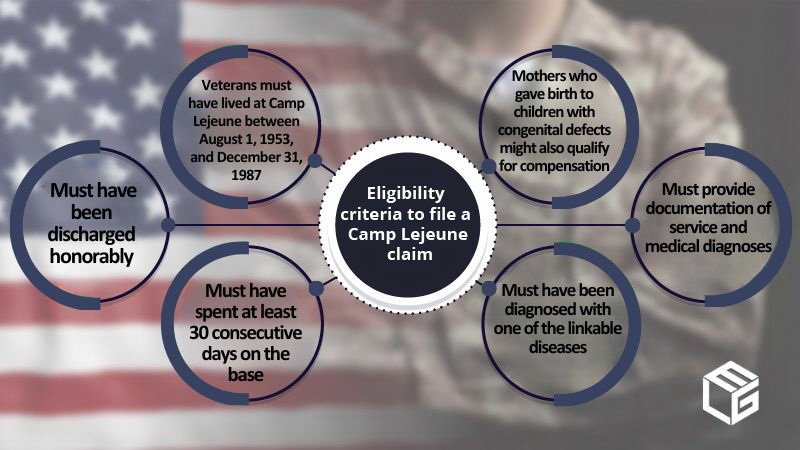Attention: We are no longer taking Camp Lejeune cases!
Lung cancer risk increased by up to 40%
A study from the medical journal Occupational and Environmental Medicine investigated the role of exposure to chlorinated solvents in lung cancer development.
Following adjustment for asbestos exposure, the researchers observed a positive, significant association with lung cancer for men and women exposed to a combination of perchloroethylene, trichloroethylene, and dichloromethane.
The first two solvents were present in the drinking water at Camp Lejeune for nearly 35 years. Perchloroethylene exposure may constitute a risk factor for lung cancer, especially among women, according to the study. It is important to note that it is mostly solvent combinations that are the culprit behind lung cancer rather than exposure to a single solvent.
Trichloroethylene was also found to play a role in lung cancer development by a study from Respiratory Medicine. In addition to having a significant association with pulmonary veno-occlusive disease, which occurs in 6% of lung cancer patients, trichloroethylene exposure might also cause lung cancer, although more research is required in this respect. The solvent is also responsible for asthma and chronic bronchitis, diseases that place veterans at a greater lung cancer risk over the years. When the solvent accumulates in cells, the following biological alterations occur in laboratory animals, which are known risk factors for lung cancer:
- cytotoxicity, the quality of the solvent being toxic to cells
- aneuploidy, the occurrence of extra or missing chromosomes
- cell divisions, the healthy cells dividing uncontrollably
Another solvent with a strong lung cancer association is vinyl chloride
Vinyl chloride is a known carcinogen, meaning it has a definitive link to cancer, including lung cancer.
The numerous volatile organic compounds found at Camp Lejeune included vinyl chloride, which was found in high concentrations in the soil and groundwater due to the improper use and disposal of degreasers and other products.
Since vinyl chloride is a gas, another route of exposure besides drinking toxic water was inhalation. The lungs readily absorb vinyl chloride, and the solvent accumulates in lung tissue. These are the potential health effects of long-term exposure to vinyl chloride above the maximum concentration level on the lungs:
- respiratory tract irritation causing shortness of breath
- thickening and inflammation of the airways
- damage to the air sacs that exchange oxygen and carbon dioxide
- gene mutations that can eventually lead to lung cancer
Animal studies indicate that frequent exposure to vinyl chloride results in a high incidence of bronchioloalveolar adenoma, a benign tumor of the lungs that can turn malignant over time. It usually starts in the smaller airways of the lung's outer portion. Like all cancers, lung cancer occurs when a cell mutates. Unfortunately, the mutated cell does not contain the correct DNA to stop division. Therefore, the body continues to produce mutated cells that eventually form a tumor.


